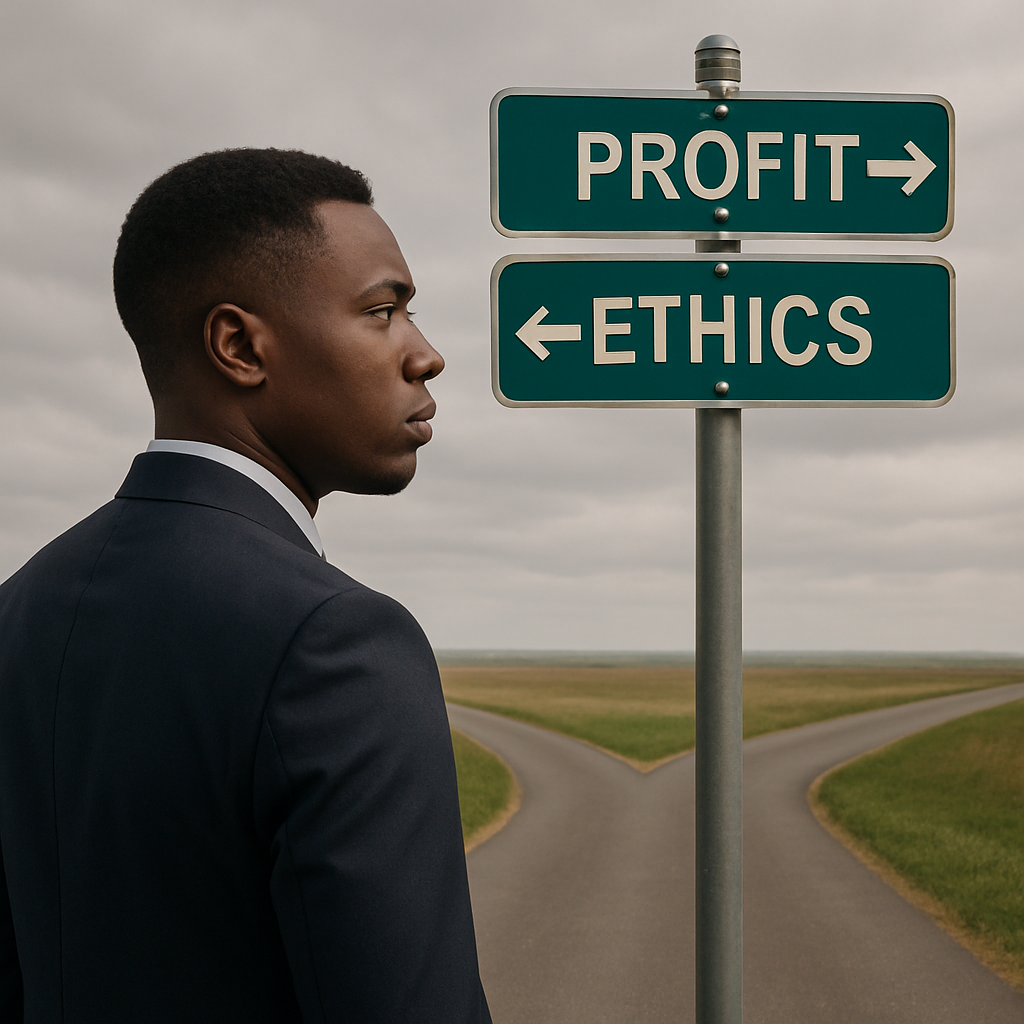Let’s be honest, we all want to make money. Whether it’s selling skincare products, baking pastries, or running a tech startup, the end goal is always profit. You need money to pay staff, rent, bills, and of course, enjoy the fruits of your hard work.
But where do we draw the line between making profit and doing what’s right?

This image was generated using AI
I’ve had the chance to observe this situation up close. Years ago, I worked closely with a small brand that sold herbal teas. Business was booming, and the owner was doing really well until the pressure to scale came in. Orders started flooding in, and instead of hiring more hands or increasing quality control, they began rushing production.
Soon, customers started complaining. One said her tea smelled funny. Another said she saw something floating inside the pack. Guess what the owner said? “Just delete the reviews and ignore their complaints or tell them the problem us not from us. We can’t let anything mess up our image.”
I remember feeling disappointed. It wasn’t just about tea anymore. It was about integrity.
That moment stuck with me.
It made me realise how easy it is for businesses to forget people in the rush for profit. Customers become numbers. Quality takes a backseat. The focus shifts from serving to earning.
But here’s the thing, when you build a business on ethics, you’re not just selling a product. You’re selling trust.
Let me share a different story.
There’s this online brand I love, they sell handmade bags. I once bought a mini leather bag that took two weeks to arrive. By the time it came, the zipper was broken. I was so upset, and I didn’t even bother reaching out at first. But the owner messaged me the next day, saying she saw my order delivery update and wanted to check in.
I told her the truth. And just like that, she apologised, refunded half the money, and sent me a new bag free of charge.

I was surprised and never expected it.
She lost money, yes. But guess what? I’ve bought from her five times since then. I’ve told my friends. I’ve tagged her on social media. That one ethical move earned her loyalty that no marketing ad could ever buy.
That’s what businesses miss.
Sometimes, prioritising ethics is the profitable move. You may not see it immediately, but it always pays off in the long run.
So, how do businesses find that balance?
You can do both, but it requires intentionality.
Train your staff. Own up when you make mistakes. Some vendors don't know how to do this, they always put all the blame on their customers.
Talk to your customer with respect, no matter how little the thing is they bought from you.
Treat your customers like humans. Set prices that don’t exploit people. Deliver what you promise, even when it’s inconvenient.
In this age where social media can either build your brand or ruin it overnight, reputation matters more than ever.
And let’s not forget employees. Ethical businesses aren’t just nice to customers, they’re fair to their workers too. You can’t be out there talking about “integrity” and “values” when you owe your staff salaries and shout at them like they’re nothing.
When it comes to business, there’s no need to pick between being rich and being good.
You can make money with your name still intact.
You can grow your brand without stepping on people’s necks.
You can win clients without lying or scamming.
And in the end, the kind of profit that lasts is the one that’s built on ethics, excellence, and empathy.
Posted Using INLEO